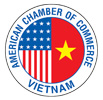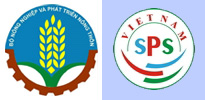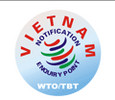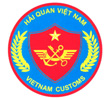The enforcement of the CPTPP over the past five years has expanded markets, attracted investment, and provided a competitive advantage for export goods. However, it has also increased the risk of Vietnamese businesses being investigated for the application of trade defense measures.

Concentration of risks in rapidly growing product categories
The trend of using trade defense tools is increasing among the CPTPP member countries. Investigations into trade defense are not only more numerous but also more complex and diverse in terms of products. This poses many challenges for Vietnamese export businesses, especially as the CPTPP enters a new enforcement phase.
This was discussed by experts at the seminar "Mitigating risks of trade defense measures in increasing exports to the CPTPP markets" on November 27.
Bui Tuan Hoan, Head of the Americas department, Department of European - American markets (Ministry of Industry and Trade), informed that since the CPTPP came into effect, Vietnam's exports to the CPTPP member countries in the Americas have experienced strong growth. Four American countries participating in the CPTPP are Canada, Mexico, Peru, and Chile, among which, except for Chile, which already had a bilateral FTA with Vietnam, Canada, Mexico, and Peru are the first-time FTA partners with Vietnam. Therefore, the tariff preferences in the CPTPP have had a very positive impact on Vietnam's export activities to these markets..
Since the CPTPP took effect for Vietnam in January 2019, Vietnam's exports to the CPTPP member countries in the Americas have experienced robust growth. This is evident in the fact that in 2021, exports to the four CPTPP member countries in the Americas exceeded US$12 billion, with Vietnam achieving a trade surplus of US$10.4 billion. Specifically, exports to Canada reached US$5.3 billion, marking a 75% increase. Exports to Mexico amounted to US$4.6 billion, showing a growth of over 105% compared to the period before the agreement took effect. Similarly, exports to Peru reached US$560 million, representing an 85% increase. Even though the agreement has not been ratified, exports to Chile also reached US$1.7 billion, experiencing a 63% growth.
Although the recent period has witnessed a significant increase in trade volumes between Vietnam and the CPTPP member countries, especially with nations like Canada and Mexico, which established an FTA with Vietnam for the first time, challenges related to trade protection measures have emerged. Phung Gia Duc, Deputy Head of the Foreign trade remedies division at the Trade remedies authority of Vietnam, shared insights. He highlighted that as we gain advantages and experience growth dynamics from the CPTPP and FTAs in general, Vietnam would enhance the export value to many new markets. This, in turn, creates pressure on the domestic manufacturing sectors of importing countries.
"Due to this reason, domestic manufacturing industries of importing countries wish for the government to apply trade-restrictive measures, and currently, the most common measures are trade defense, anti-dumping, countervailing, and safeguard measures," said Duc. He added that many CPTPP members were investigating trade defense measures against Vietnam. Australia is currently investigating 18 trade defense cases against Vietnam, equivalent to Canada, Malaysia has over 10 cases, and Mexico has three cases.
According to Duc, the principle to initiate a trade defense case is an increase in imports. If the importing country observes a significant increase in imports and pressure on its domestic industries, they will initiate the first steps to investigate trade defense.
"Therefore, the products that will be most vulnerable and easily investigated are those with rapid and strong growth," emphasized Duc. According to the statistics of the Ministry of Industry and Trade, traditional advantage and backbone products of Vietnam, such as seafood, wood and wood products, basic metal products like steel, aluminum, products related to textiles and garments, and some chemical products, will continue to face trade defense lawsuits in the future, even within the FTAs and CPTPP markets.
Increasing awareness of trade defense
From the perspective of businesses, Vu Van Phu, Vice Chairman and Secretary-General of the Vietnam Aluminum Association, stated that the aluminum industry has maximized the advantages of trade agreements, especially the CPTPP. However, businesses also face various risks from those markets, particularly trade defense measures.
The aluminum industry has experienced significant growth in recent years, and businesses in this sector have fully utilized the advantages of various trade agreements, especially the CPTPP, with markets such as Canada, Japan, and potential markets in the Americas or Australia.
"However, not every trade agreement means businesses can operate freely. Businesses also face many risks, especially trade defense measures. This is a significant risk for domestic export businesses and, in particular, in our aluminum industry," informed Phu. He added that, notably in 2023, the aluminum industry had to deal with three cases from the US related to solar energy batteries originating from Vietnam, aluminum wires and cables from Vietnam, and most recently, extruded aluminum products from 15 countries, including Vietnam.
According to the representative of the Vietnam Aluminum Association, trade defense measures by other countries pose a significant risk to domestic businesses. This trend has a considerable impact on the export of businesses, and the export volume of the aluminum industry has been significantly affected, as the US market accounts for 70 to 80% of the aluminum industry's export volume to the international market.
Given the upcoming enforcement phase of the CPTPP, Duc believed that businesses need to raise awareness of trade defense measures. They should allocate human and material resources to research the trade defense laws of export markets.
From the perspective of State management agencies, the Ministry of Industry and Trade will focus on disseminating general knowledge about trade defense, and in the coming years, it will increasingly limit target groups and conduct more in-depth training to enhance awareness for businesses and business associations that may not have sufficient resources for independent research.
Source: VCN
Keywords: trade defense, CPTPP, market, tool, exports



















